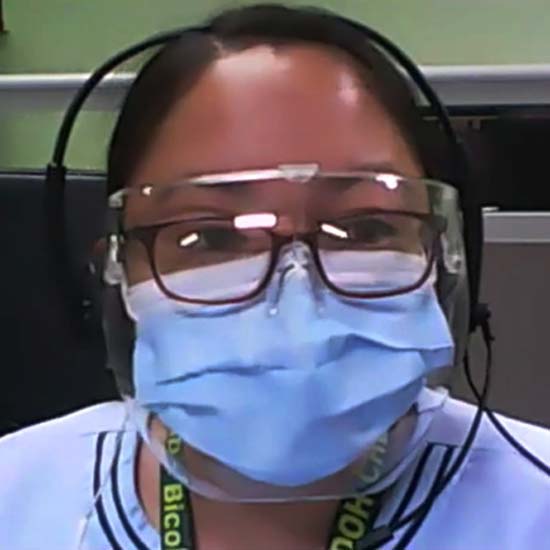Maternal healthcare in the time of COVID
When a mom gives birth safely, she gets strong in body and mind. Her children and family grow strong along with her. And when they go out into the world, the world gets stronger as well, which grows and strengthens her community, creating more opportunities for everyone.
At MSD, they call it “the Mom Effect.” And when it happens, a healthier world happens.
“At MSD, we believe that no woman should ever die while giving life,” notes Mike Blanch, market access and corporate affairs director, MSD.
Yet every day, 800 women die from complications related to pregnancy and childbirth.
According to a study by the United Nations Population Fund and the UP Population Institute, before the pandemic, 2,600 Filipino mothers were dying every year from complications from pregnancy and childbirth, which are preventable conditions.
And so, on Sept. 20, 2011, MSD for Mothers was created. This US$500-million initiative is primarily focused on investing in the healthcare of mothers and the support/health system surrounding them.
“MSD for Mothers, which is in support of the United Nations’ Sustainable Development Goal 3 to eradicate preventable maternal deaths worldwide, collaborates across sectors to improve the health and well-being of women during pregnancy, childbirth and the postpartum period,” explains Blanch.
The grant supports the strengthening capacity of integrated health systems to deliver high-quality maternal care for women of reproductive age and how it impacts the community they live in.
Accessible maternal healthcare needed now more than ever
According to a study by the United Nations Population Fund (UNFP) and the University of the Philippines Population Institute, before the pandemic, 2,600 Filipino mothers were dying every year from complications from pregnancy and childbirth, which are preventable conditions.
As the COVID crisis continues, disadvantaged women face a new set of challenges and limitations that result in delays and a decline in checkups, disruption of medical services, and problems accessing modern contraception.

This predicament could further increase the incidence of maternal mortality by 26 percent, up to 670 additional deaths from 2019, and of unintended pregnancies to 2.56 million by the end of 2020.
“We take a holistic approach to addressing the many factors that impact maternal health and strive to leverage the private sector for the public good,” enthuses Dr. Beaver Tamesis, president and managing director of MSD in the Philippines, who announced that the Philippines is once again included in the MSD for Mothers Program.
“It also comes at a critical juncture when Filipina mothers’ challenges are compounded by the limitations and threats posed by the pandemic,” Tamesis adds.
Since its inception, this is the third time that the Philippines has received the MSD For Mothers’ global grant. The first grantee was the Zuellig Family Foundation in 2011.
“We piloted a health leadership management program in geographically isolated and disadvantaged areas or what we called the GIDAS municipalities in Samar and Northern Samar,” shared Blanch.
The community leaders, healthcare workers and local mayors underwent transformative leadership training that enabled them to understand their role in developing the healthcare system around their communities.
“As a result, these 20 LGUs that were piloted in a three-year program attained improved and certified healthcare facilities with the right equipment, trained personnel and functioning referral system,” said Blanch.
In 2016, MSD For Mothers partnered with the United Nations Foundation to pilot a blueprint tool to encourage private-sector involvement in family planning, either in the workplace or the community.
“In effect, we were able to reach 1.4 million individuals through the family-planning sessions in the workplace,” notes Blanch. “It has reduced absenteeism by 18 percent, and it has reduced employee turnover by 43 percent.”
Transforming futures
This year, MSD for Mother’s newest partner for 2021-2024 is Jhpiego, a non-profit global health leader and the Johns Hopkins University affiliate that is “saving lives, improving health and transforming futures.”
The global grant will be provided for the next three years in improving the quality of maternal healthcare in healthcare facilities in Sorsogon.
“One of the criteria we used in selecting sites for this project is the maternal mortality data in the country,” explains Dr. Ingrid Magnata, country program manager of Jhpiego Philippines.

The Philippines has a maternal mortality ratio of 121 per 100,000 live births.
“In 2017, it was recorded that the Bicol region had the second to the highest maternal mortality in the country. Also, Sorsogon is identified as a Universal Healthcare integration site and there are interventions being done by the province as far as improving the province-wide healthcare system,” explains the lady doctor.
MSD for Mothers will focus on maternal healthcare improvement efforts in Sorsogon, the fourth most populous province in Bicol, for three years.
In collaboration with the national and local government, the program aims to enhance maternity care in 18 public and private health facilities in one district in Sorsogon, while also establishing an effective referral network to increase timely response to obstetric emergencies.
The effects of the lockdown on maternal health have so far been largely unexplored. In the Bicol region, the pandemic resulted in a spike of maternal deaths.
“Prior to the pandemic, the Bicol region already had a decline in maternal mortality rate (MMR). Kudos to our LGUs,” notes Dr. Rita Mae Ang-Bon, family cluster head, DOH-Bicol CHD. “But year 2020 was a testing year for all of us. And based on the data we’ve gathered, there was an increase in MMR in all provinces.”
The causes were multi-factorial: the closing of birthing facilities, fear of contracting the virus while having prenatal checkups; lack of transport services, and there was nowhere to go since most big hospitals were transformed into COVID-referral and COVID-admitting hospitals.

Another challenge in the delivery of quality maternal care is that healthcare providers at community health centers fear or hesitate to contact providers at the hospital level for guidance.
This lack of coordination between levels of care puts women at great risk since patients already in serious condition will then arrive at higher-level facilities where hospital staff and facilities have not been adequately prepared to receive them.
“It’s so important to address these barriers if we are serious about saving these mothers,” adds Dr. Magnata. “By project end, we hope that our target district will serve as a model for other districts in Sorsogon and other provinces.”
The action plan involves operationalizing quality systems and nurturing a culture of respect in health facilities, strengthening data-recording and emergency responses, establishing increased coverage of evidence-based interventions, and building local government capacity within the referral network.
“We should all learn from experience. By this time, necessary adjustments in the service delivery network must already be in place. Also, adaptations to the new normal and efforts to protect our pregnant women — the mothers — should now be at the forefront,” stresses Dr. Ang-Bon. “If there’s still an increase in maternal mortality for 2021, that’s really unacceptable.”


